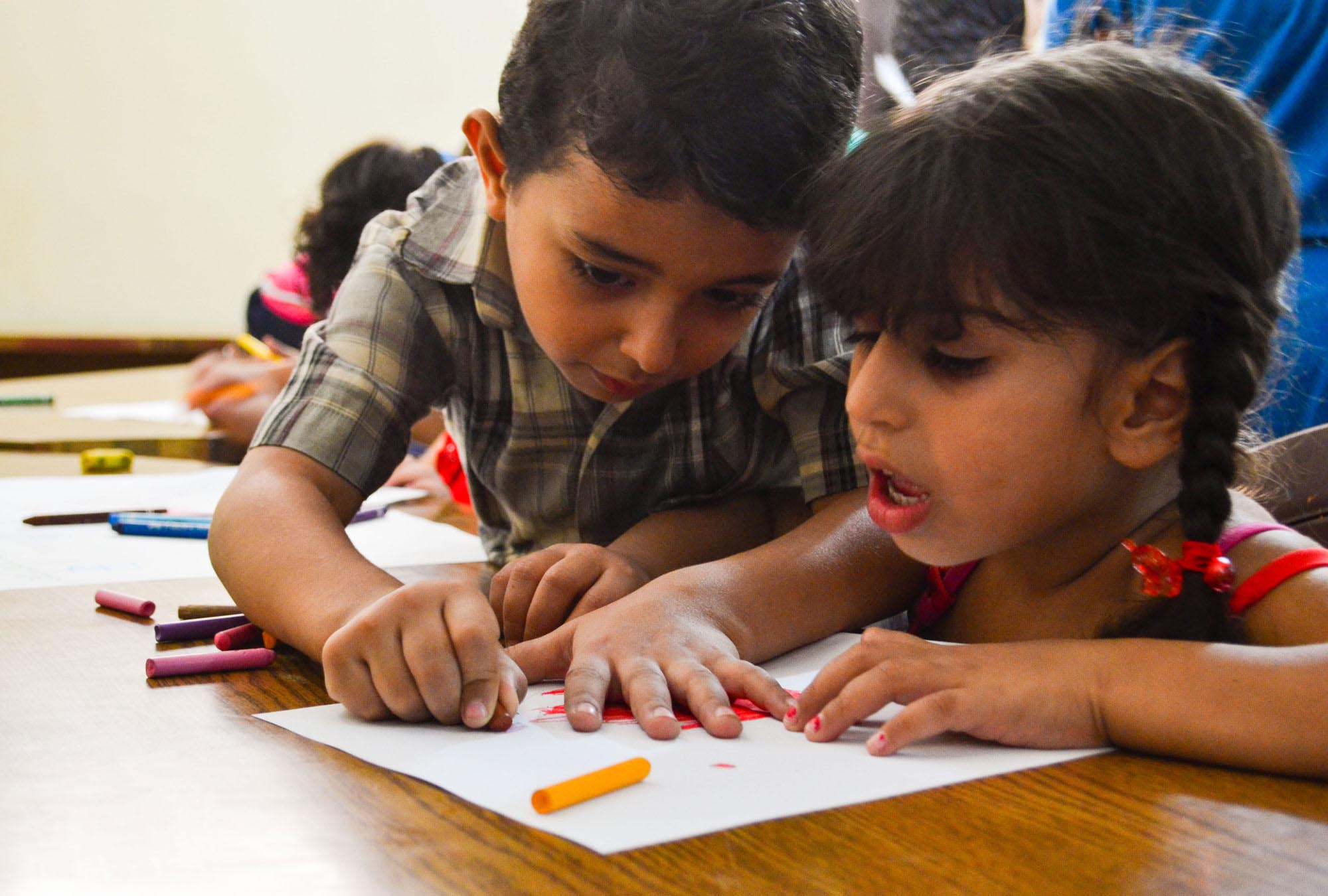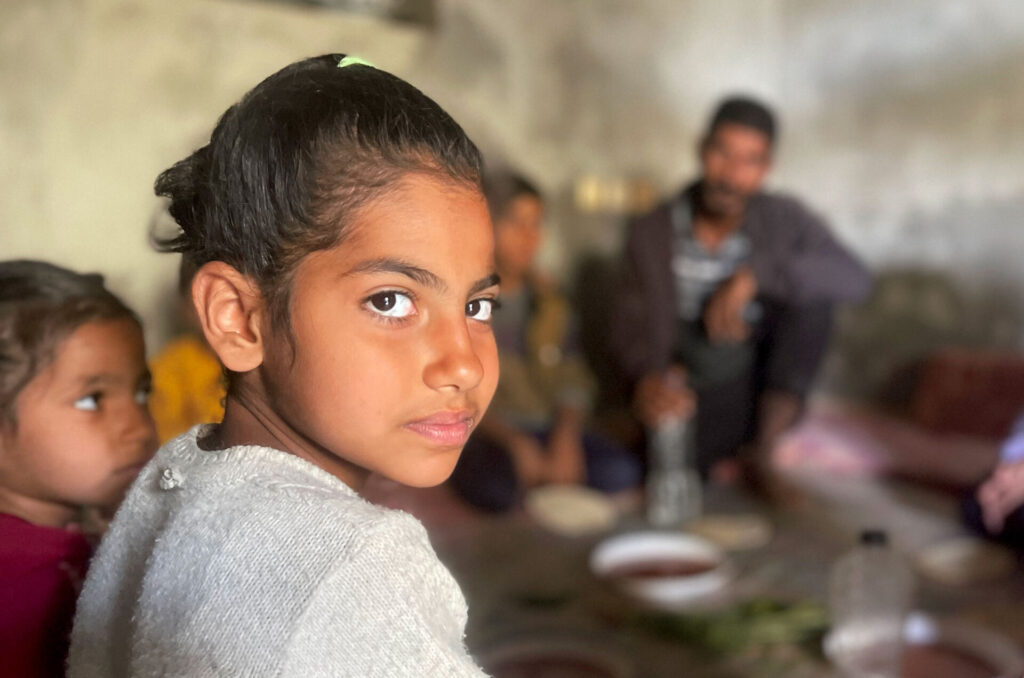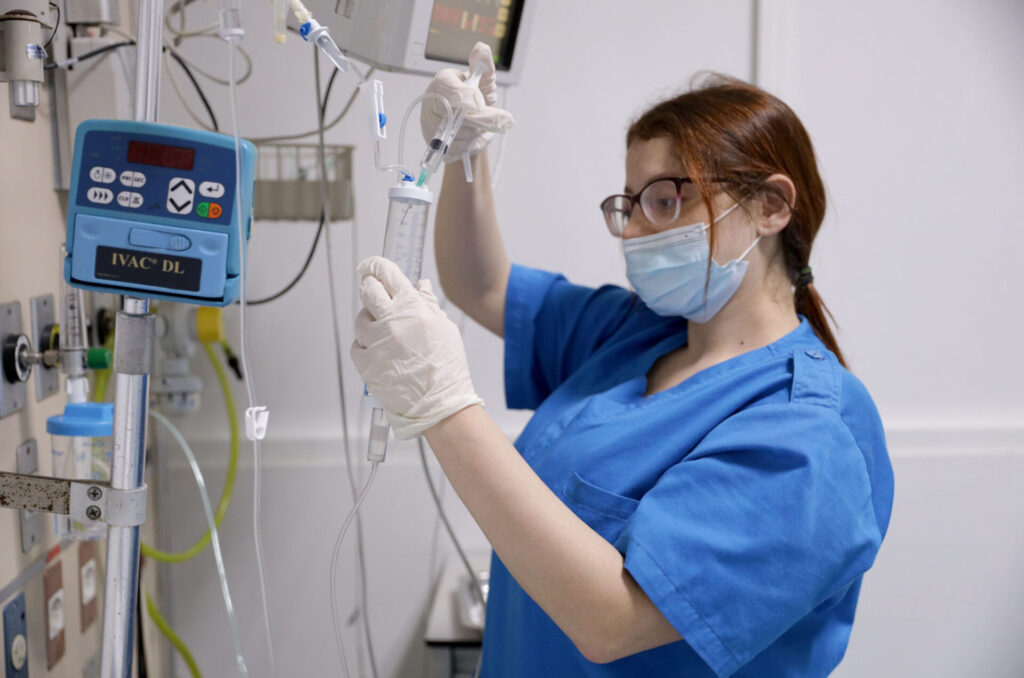Sep, 2013
In Shatila refugee camp in Beirut, refugees from Syria spend most of their days fretting about how to feed and clothe the family and just survive in cramped, tension-filled living conditions. There is little time to smile. But the cloud of sadness was lifted for a day when Anera and its partner Najdeh Association organized a “Healthy Day” festivals in Shatila and Burj El Barajneh camps. Hundreds of men, women and children gathered for the fun-filled, educational party.
Najdeh’s social workers performed skits that provided useful health tips, like how to prevent and treat parasitic infections or to get a reluctant child to eat healthy food. The message of the day was focused on healthy habits, especially relevant for refugee families trying to keep some sense of normalcy under difficult conditions.
The audience joined in the games and puzzles, drawings and poetry recitals, much to the children’s delight (check out Anera's health education materials). The highlight of the day for the children? When the music started, they sprang up to dance and soon everyone joined the traditional and energetic dabke dances.
Anera health program manager Dima Zayat explains one of the goals of the event: “To give everyone some much-needed time and space to have fun and socialize.”
Anera and Najdeh arranged the festivals in Shatila and Burj El Burajneh camps to celebrate completion of a three-month emergency relief campaign that provided basic food and non-food supplies to 1,500 families from Syria and their host families. The campaign was funded by the UN Office for Coordination of Humanitarian Affairs (UNOCHA).
Basma arrived in Shatila camp in December with her four children. The 33-year-old left her husband back in Yarmouk Camp, near Damascus so he could work and provide for the family. She and her children now live with five others in a small house. Basma dreams of going home but fears it won’t be possible. Basma says she stays inside most of the day, and so do her children, so the festival is a great relief for the family: “The kids were very excited to come! For once, we have something to do; we can laugh and meet other people. Today was a breath of fresh air for us!”
Nisrine, Jamal, and their two children have been staying in nearby Burl El Barajneh camp. They don’t know anyone here, so they have not yet been able to find a place to say: “We’ve been living in a nearby mosque since we got here. But we can’t stay there, I’m worried for the future.” During the event organized in the camp, Nisrine was able to talk with Najdeh’s social workers and meet other families with similar difficulties. Nisrine said she no longer felt so alone.
Najdeh’s coordinator in Beirut Hoda Abbas is glad: “Some men told me that this is actually the first time something was organized for them to have fun.” Usually, Palestinian refugees from Syria just receive emergency relief aid but not much more has been done to ease their emotional distress. The festival was a welcome response.
On their way out, a group of three women burst out laughing. “I haven’t laughed like that in ages! Usually I just sit at home and do nothing; it is wonderful to have the opportunity to meet people and finally have some fun!”




